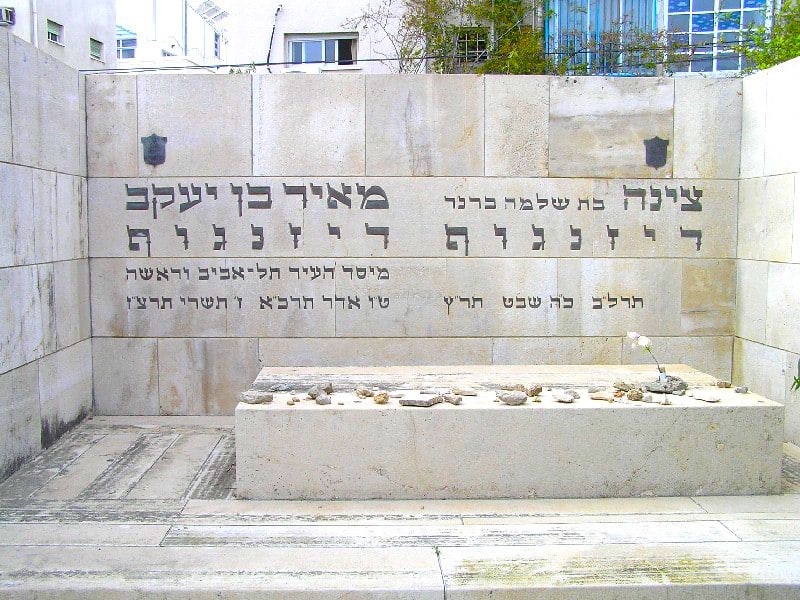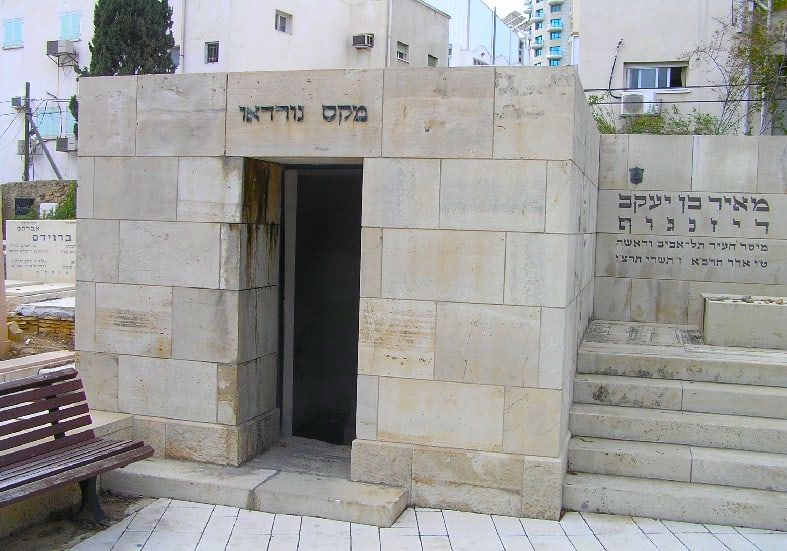Trumpeldor Cemetery is a historic cemetery on Trumpeldor Street in Tel Aviv. Also referred to as the ‘Old Cemetery,’ the graveyard contains approximately 5,000 graves of great poets, politicians, artists, and ordinary people. The cemetery is named after Joseph Trumpeldor following his death in the Battle of Tel Hai in 1920. While a cemetery might seem odd to visit, Trumpeldor Cemetery is a fascinating place to explore and provides a captivating journey through Israel’s social, cultural, and political history.

The Trumpeldor Cemetery Established in 1902 on a tract of unoccupied land in Jaffa, the cemetery was far from populated areas – it was only six years later that the first neighborhood of Tel Aviv, Ahuzat Bayit, was founded. The cemetery became the final resting place for the city’s founders, early residents, and cultural and historical figures, including Moshe Sharett, the second Prime Minister of Israel.
Visiting the Trumpeldor Cemetery
The cemetery has three entry gates located north of Trumpeldor Street, between Hovevei Zion and Zion Pinsker streets in downtown Tel Aviv. The main gate (center) was opened in 1926 with the interment of the remains of Max Nordau.
The eastern gate and section of the cemetery are the oldest and are home to the tombs of Jews from Jaffa and the early leaders in Tel Aviv. The southwest corner of the cemetery holds the graves of well-known persons.

So among them are essayist Ahad Haam, Tel Aviv’s first mayor, Meir Dizengoff, poets Shaul Tchernikovsky and Chaim Nachman Bialik and his wife Manya, writer Deborah Baron and Zionist leader Haim Arlosoroff. World-renowned humorist Ephraim Kishon (1924-2005) is also buried here.
Tel Aviv Ultimate Guide

Touring Trumpeldor Cemetery
The Cemetery is open to the public and is accessed from Trumpeldor Street. As in all Jewish graveyards, it is common for a man to cover their heads during the visit and for all to wash their hands at the exit. Many will also put a small pebble over the tomb, a common Jewish tradition, expressing remembrance and respect for the deceased.

